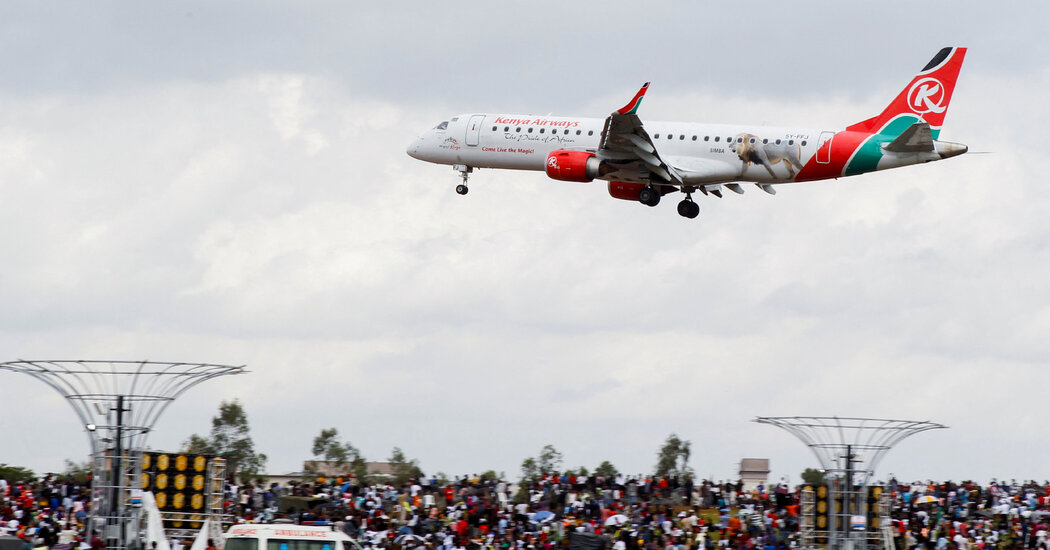Kenya’s government said on Monday it was gradually restoring power after the country’s third major blackout in four months, adding to rising discontent with President William Ruto over a worsening economic situation and his policies since taking office 15 months ago.
The blackout hit many parts of the country after 7 p.m. local time on Sunday, with Kenya Power, the state-run utility, blaming it on a “suspected fault affecting the power system.”
Entire neighborhoods in the capital, Nairobi, were plunged into darkness, and two terminals in the country’s main international airport also lost power, according to the Kenya Airports Authority.
The Jomo Kenyatta International Airport in Nairobi, or J.K.I.A., is among the busiest hubs in Africa, with millions of travelers passing through it every year.
The airport authority said in a statement on Sunday evening that two of the airport’s four generators — which were recently tested in the past week — had “failed to immediately activate” but that the control tower and runway remained operational during the blackout.
Video footage shared on social media and broadcast on local television showed passengers finding their way through darkened terminals using the flashlights on their phones.
Kenya’s transport minister, Kipchumba Murkomen, said the government would mount an investigation into the cause of the outage.
“Considering the frequency of the power disruption, and taking into account the fact that JKIA is a facility of strategic national importance, we are making a formal request to the National Police Service to investigate possible acts of sabotage and coverup,” Mr. Murkomen, said on Sunday evening in a statement on the social media platform X.
Some parts of Nairobi and the coastal city of Mombasa were still without power as of Monday morning — a day before Kenya marks its 60th independence day.
Kenya frequently experiences power interruptions, but the spate and scope of the recent outages have prompted widespread concern among the public.
In November, it took engineers almost 10 hours to restore power after an outage affected many parts of the country. That followed a 14-hour blackout in August that paralyzed businesses and affected operations at the international airport in Nairobi.
Mr. Murkomen, the transport minister, responded by firing the managing director of the airport authority and pledged the situation would not be repeated.
At the time, Kenya Power blamed the blackout on disruptions at the country’s biggest wind farm, while the power producer pointed the finger at the national grid.
Kenya generates most of its electricity from renewable resources, including geothermal, wind and solar. But old infrastructure, corruption and illegal connections have made the grid unreliable, and ever-growing electricity taxes mean that power bills are too expensive for many Kenyans.
Mr. Ruto has faced searing criticism and mounting public anger as Kenya’s economic pains have grown. Since coming to office in September last year, Mr. Ruto has scrapped fuel subsidies and raised taxes, even as he hosted lavish state dinners at home and took dozens of trips abroad.
Over the past year, inflation has continued to rise, the Kenyan currency has continued to depreciate and the costs of food, fuel and electricity have skyrocketed. Torrential rains and severe floods, exacerbated by climate change, have also wreaked havoc in recent weeks, killing dozens of people and displacing tens of thousands of others.
#Kenya #Hit #Major #Blackout #Months



